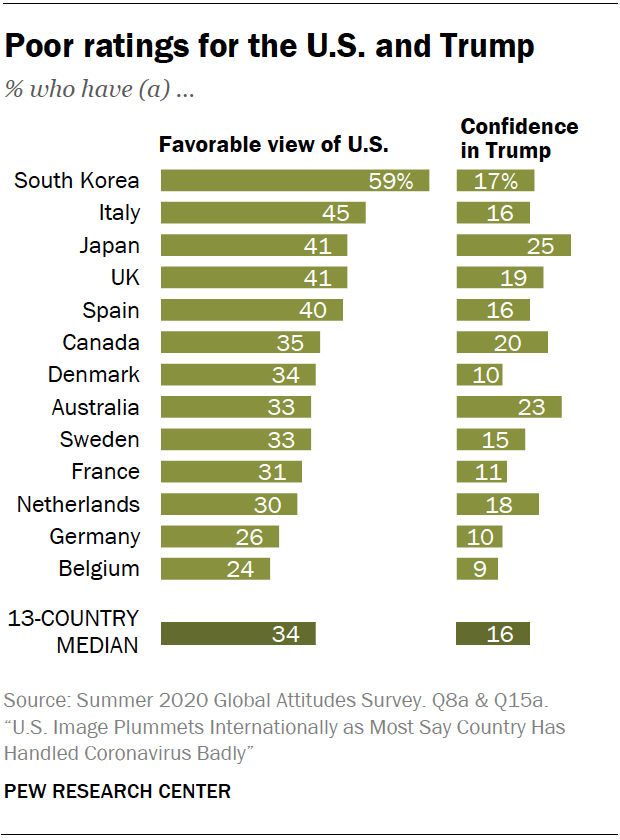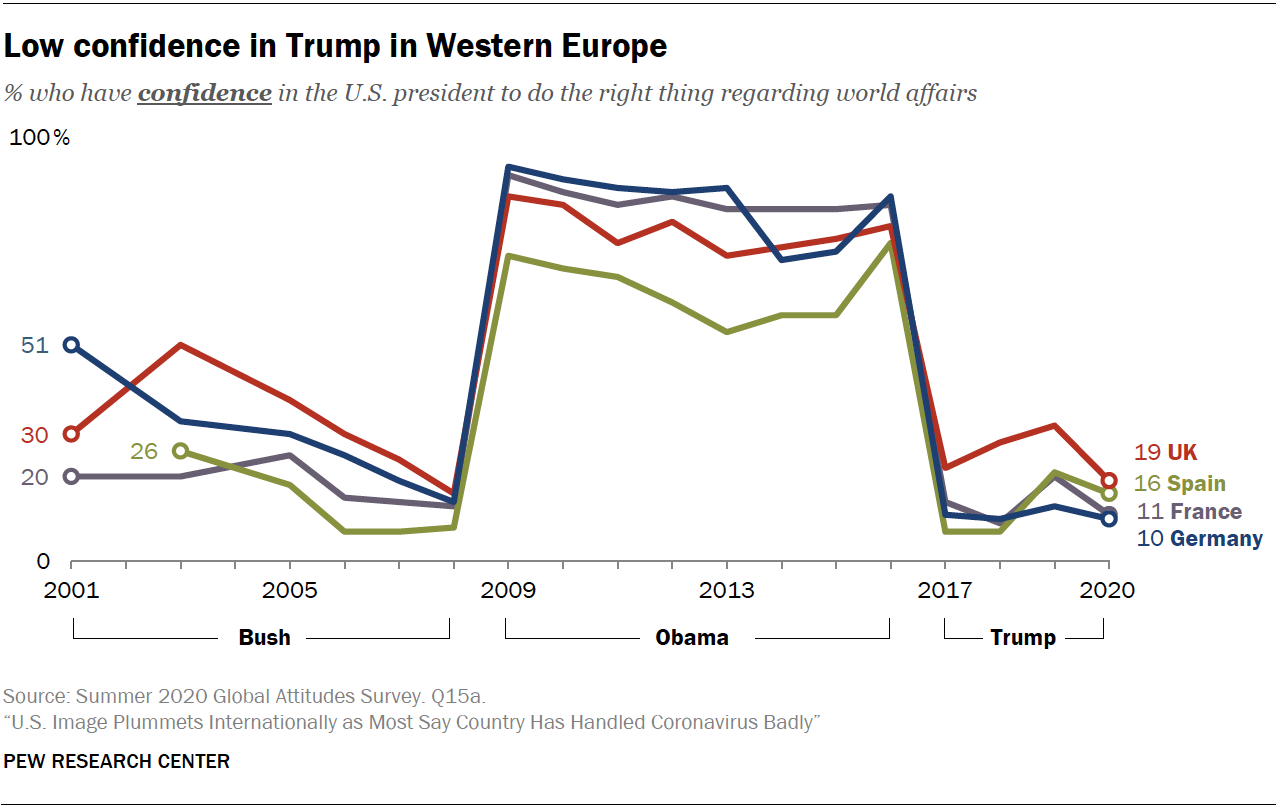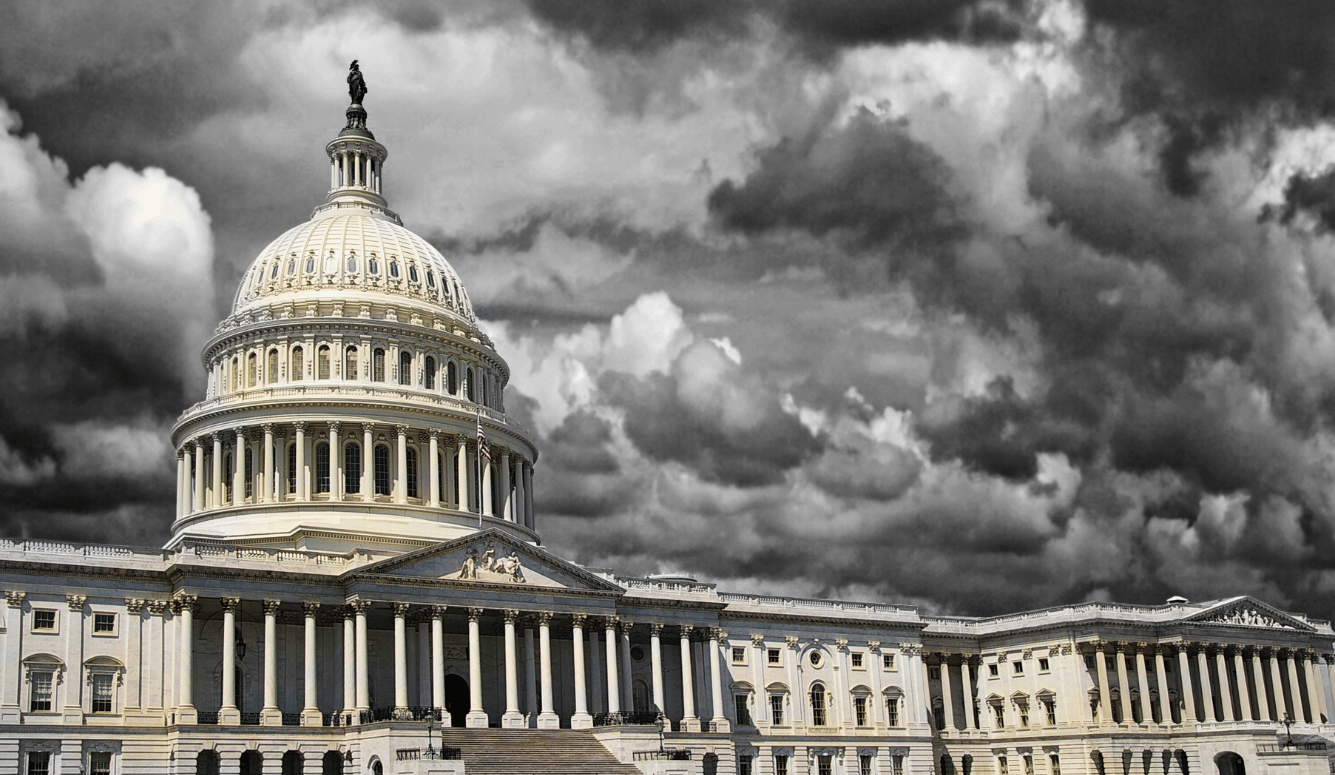Top Stories
What Happened to America’s Soft Power?
What Marc saw as relatively smooth sailing for the CIA’s critical operations during the first two years of the Trump administration is beginning to change.

For most Americans, the majority of whom will never leave North America, the issue of the US’s image abroad is an issue of tenuous concern at best. The notion that the US’s image abroad has a palpable effect on the efforts of the Central Intelligence Agency to penetrate the inner circles of our foreign adversaries is not something they take into consideration.
Perhaps they should.
As a former CIA case officer, I was truly alarmed to see a recent Pew poll headlined US Image Plummets Internationally. As the poll notes, “the share of the public with a favorable view of the U.S. is as low as it has been at any point since the Center began polling on this topic nearly two decades ago.”
Some of the low standing can be attributed to the perception that the US has handled the COVID crisis poorly.
But as much or more is that President Donald Trump is widely despised by our putative allies.

The US Department of Defense has a concept, “Preparing the battlefield.” Before the first bullet flies or missile is launched, you want to do everything possible to tilt the battlefield in your favour. That way, the fight is over before it has truly begun.
The US’s reputation abroad is a major component in whether that battlefield is tilted to the CIA’s advantage or disadvantage.
Pretend I’m a CIA case officer (those who recruit and run spies) operating in Iraq or Turkey. I’m trying to recruit an asset to report on the fight against ISIS in Syria. Some of the US’s staunchest allies in that fight have been Kurds, an ethnic group with enclaves in Turkey, Syria, Iraq, and Iran.
Yet the Iraqi I want to recruit just saw Trump less than a year ago abandon our Kurdish allies to the tender mercies of Tayyip Erdoğan—after a phone call. Erdoğan suggested the US pull our troops working with the Kurds against ISIS out. Trump thought that sounded like a good idea, so he ordered it, without consulting with our other allies.
Trump is also famously disdainful of his own intelligence community, while being loose lipped with sensitive information, having infamously blurted out to a senior Russian official visiting the Oval Office sensitive counterterrorism information shared with the US by Israeli liaison.
(Note: In the world of spies and stealing secrets, directly collecting information from human sources or technical programs is one big way the CIA gets the secrets it needs. The other, just as important, is from “liaison”—shorthand for swapping information with foreign intelligence and law enforcement services.)
One of the best arrows any CIA case officer has in his quiver is that, come recruitment time, we can say with a straight face to potential assets that we will keep them safe. We also offer money, or favors (e.g., getting your son to see a top US medical specialist for his juvenile diabetes) and those go a loooooong way. Still, spying for a foreign power carries risk. It is not undertaken lightly.
I can’t know what challenges CIA case officers are experiencing now, having been outside the world of espionage for 14 years. But I can say what it was like the last time world opinion of the US was this low, which is when the Bush administration brought the US into a bloody Iraq war after pressuring the US intelligence community to cook the books on WMD assessments. This was a debacle I had a front row seat at, having served in the CIA’s Counter Proliferation Division, and the Iraq Survey Group, the multi-agency, multi-nation task force looking for Saddam’s non-existent WMD after the US’s 2003 invasion of Iraq.
Dodging insurgent ambushes and car bombs was a way of life if you were a CIA officer operating in Iraq, so a huge level of unpopularity was baked in. I managed to get one senior Iraqi source to give me good info about what sanction busting the Iraqis had actually done: preliminary missile design work on ballistic missiles with ranges which would have exceeded UN sanctions. But that only came after multiple meetings where I was harangued about what a spectacular failure the US invasion was in general, and the US Coalition Provisional Authority (CPA) in particular. I could not dispute the source’s characterizations; the CPA’s unbelievably inept missteps guaranteed the US was going to face a violent insurgency after alienating millions of heavily-armed Iraqis.
Honestly, I think the only reason the source shared the info with me (I was the fourth case officer to interview him; he didn’t share it with previous three) was because I listened to his tales of how the US was screwing up his country and didn’t deny or evade or pretend things were going swimmingly. They weren’t, and being honest about that was such a refreshing surprise he was disarmed enough to give me the intel he had on the missile design work.

When I wasn’t in Iraq, I was serving in a central European capital that saw 20,000 protestors take part in anti-US demonstrations. Local liaison involved reporting potential death threats against anyone serving at our embassy.
CIA colleagues with decades more experience are going on the record with the same concerns; that this administration’s unpopularity has brought us back to levels as bad or worse as during the Iraq War. Getting to that level of unpopularity without having launched a war that killed tens of thousands of Iraqis under what amounted to false pretences is quite the feat of foreign policy bungling.
When I asked 28-year CIA vet John Sipher whether our standing in the world was a real concern, he sent me a quote from a piece he’d written for the Washington Post.
And there’s another reason for America’s spies to worry about Trump. The most effective weapon available to America’s intelligence officers overseas is that they visibly represent the United States of America. Many a spy disgusted by the corruption in their own countries knows that America, built on the rule of law and respect for individual rights, is a powerful and glaring alternative. American and Western intelligence professionals know that many Russians are seeking an alternative future for Russia and are exhausted by the constant thievery, corruption, and lies of their leadership in the Kremlin. If your own president is a gangster and is hurting your country to satisfy his personal needs, the U.S. is the place to go. At least it was. For the intelligence collector, the worry is that the more Trump denigrates Western values and displays a sense of personal dishonesty, the less the U.S. looks like the better option. Why risk your life to provide information to a U.S. president who doesn’t understand the stakes and doesn’t respect the work of his security professionals?

I also spoke to Christopher Burgess, a 30-year veteran of the CIA and a recipient of the Distinguished Career Intelligence Medal. He was also my penultimate chief of station before I left the CIA.
Christopher told me,
When a country loses its ability to project trust the ripple effect touches all arms of the government, including the intelligence community. This includes both liaison relationships which are, by their very nature, built upon the trust between organizations and governments, as well as the recruitment of sources of information, information being collected to ensure the policy makers of this country have the best possible optic on a given situation in order to not make a miscalculation. When those individuals with access to that information lose trust that their identity and information will not be protected, they will remain silent and the policy makers in this country will remain blind.
When you’re blind, you get things like Pearl Harbor and 9/11.
Like everything in the world of human intelligence operations, this is murky. There are competing values at play, and you cannot measure the potential assets that you couldn’t recruit because they didn’t trust you, or the information a liaison service didn’t share because they didn’t trust the current administration. I also can’t provide current examples of where this may occur, because it would be illegal for currently serving CIA officers to tell me, and even if they did, if I printed their comments in an article without getting clearance from the CIA, I’d be liable for fat fines and possibly jail time.
What I could do is sound out Marc Polymeropoulos. He is a 26-year CIA vet with the most recent insight about how perceptions of the US abroad might be affecting the ability of the CIA to perform its mission. He retired from the CIA in the summer of 2019 from a senior position as a deputy division chief. He’s not universally loved by current Agency leadership because he’s vocal about their shortcomings.
What Marc saw as relatively smooth sailing for the CIA’s critical operations during the first two years of the Trump administration is beginning to change.
He told me,
There was no real change with our relationships with allies in the first two years. They understood we’d elected a giant disruptor. Everyone just kept their heads down and kept doing the work.
That started to change in the months before I retired. I’m confident this remains the case right now. Our partners are thinking they may have to hedge their bets. They’re getting tired of things like the President’s dalliance with adversaries like Putin and Erdoğan while he’s criticizing our allies. Abandoning our allies in Syria. Our alliances are creaking under pressure.
Still, Polymeropoulos was relatively optimistic about the CIA’s ability to keep performing its mission. Assuming, that is, the US switches the current chief executive, who routinely denigrates and ignores the intelligence community, for one who understands the intelligence community’s value added, and why working with your allies is a good thing.
Polymeropoulos said,
Our most important partners understand this is a cult of one. Also, Biden knows everybody from his time on Senate Foreign Relations. He knows national security people all over the world. I don’t think there is lasting damage. Yet. I think if Biden wins, the day after, the world will breathe a sigh of relief. Things can all go back to normal if that changes.
But, a second Trump term? That’s a catastrophe.
Art Keller has covered terrorism issues in and out of government for 20 years. His novel about the CIA and Iran is Hollow Strength. You can follow him on Twitter at @ArtKeller.






